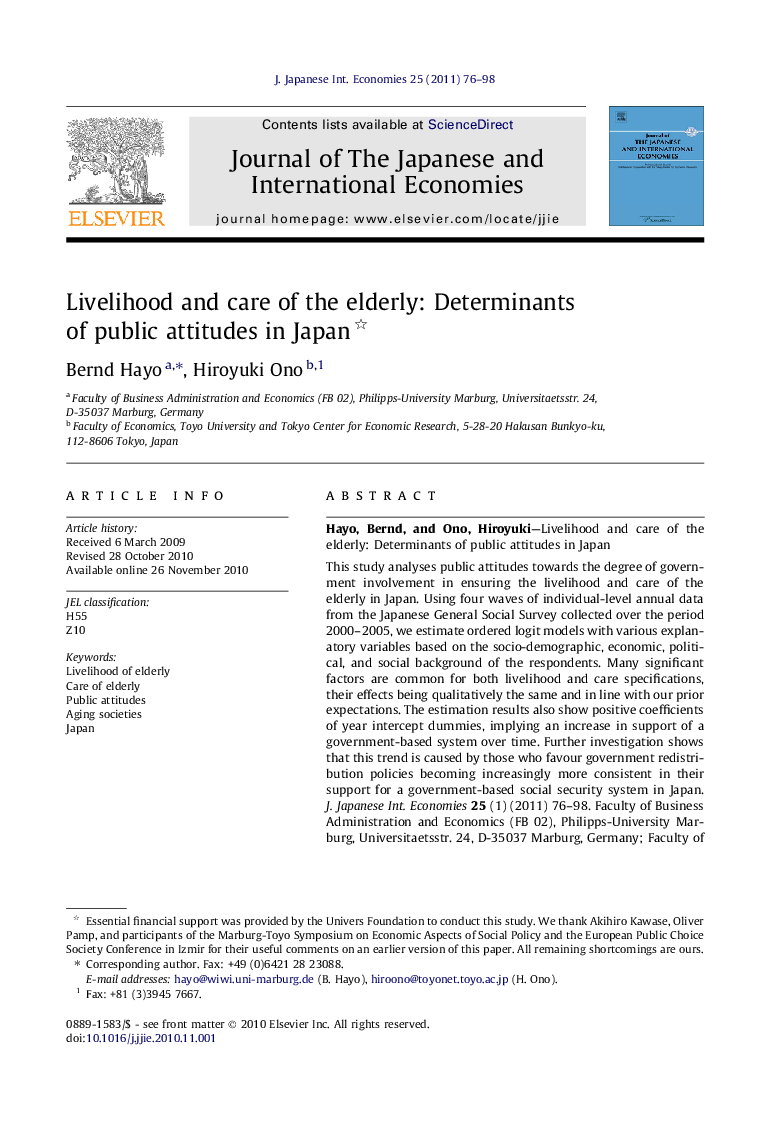| Article ID | Journal | Published Year | Pages | File Type |
|---|---|---|---|---|
| 965112 | Journal of the Japanese and International Economies | 2011 | 23 Pages |
Abstract
This study analyses public attitudes towards the degree of government involvement in ensuring the livelihood and care of the elderly in Japan. Using four waves of individual-level annual data from the Japanese General Social Survey collected over the period 2000-2005, we estimate ordered logit models with various explanatory variables based on the socio-demographic, economic, political, and social background of the respondents. Many significant factors are common for both livelihood and care specifications, their effects being qualitatively the same and in line with our prior expectations. The estimation results also show positive coefficients of year intercept dummies, implying an increase in support of a government-based system over time. Further investigation shows that this trend is caused by those who favour government redistribution policies becoming increasingly more consistent in their support for a government-based social security system in Japan.
Keywords
Related Topics
Social Sciences and Humanities
Economics, Econometrics and Finance
Economics and Econometrics
Authors
Bernd Hayo, Hiroyuki Ono,
